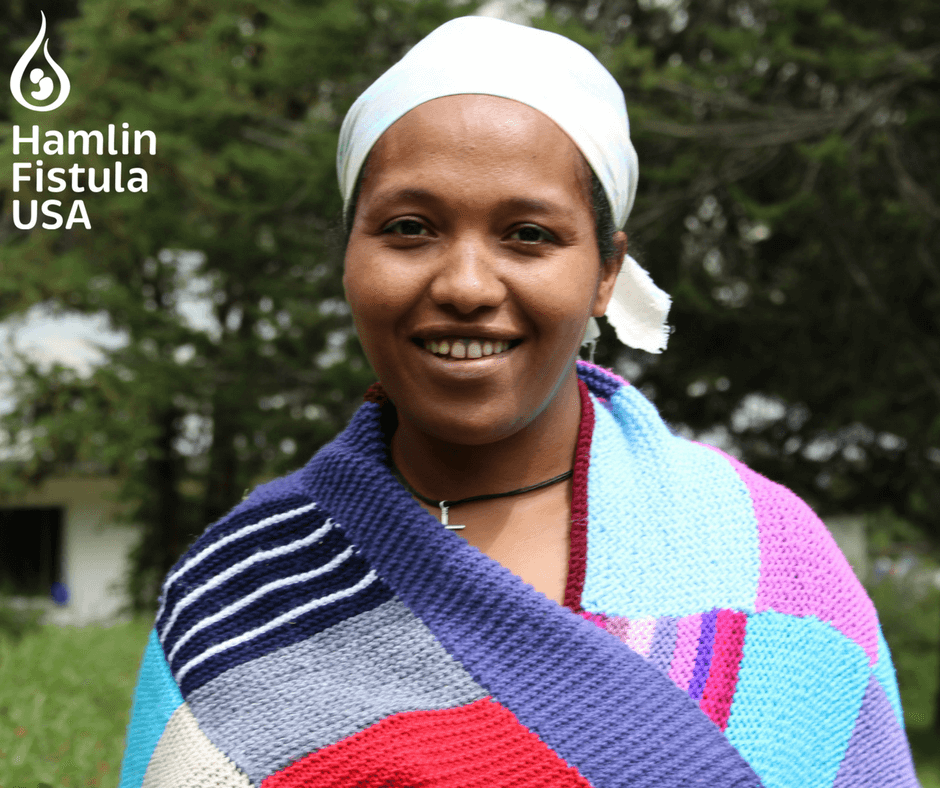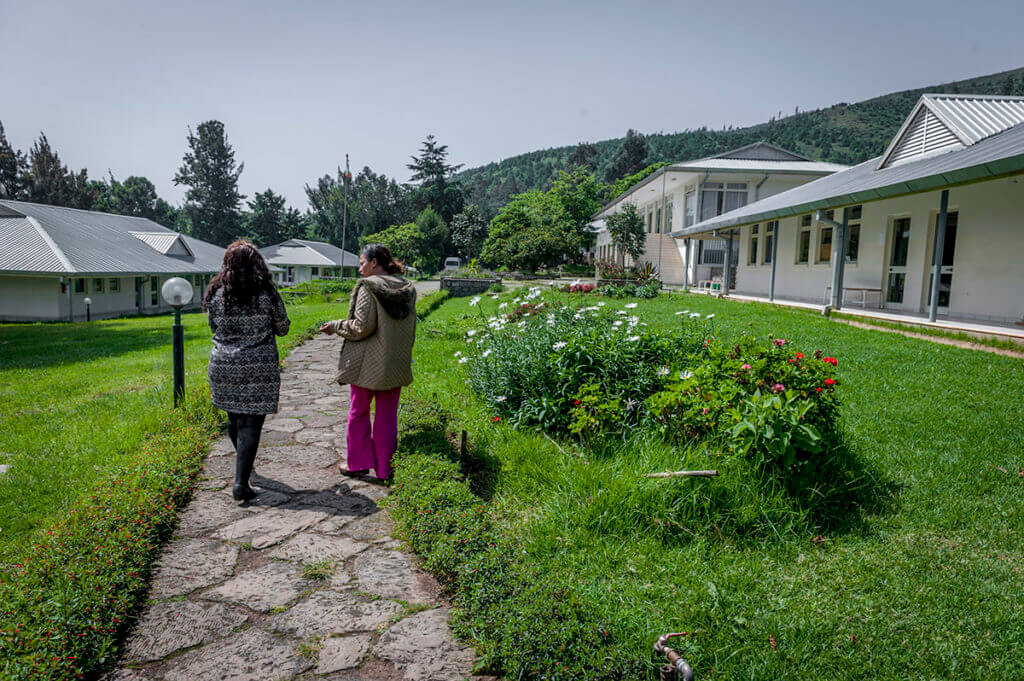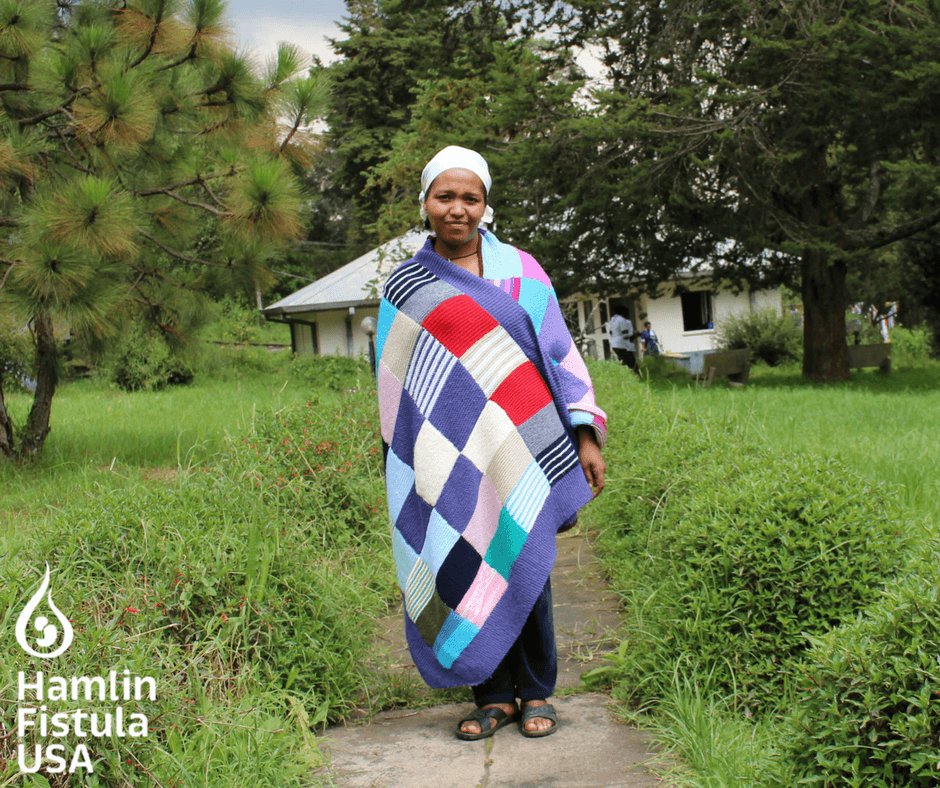Eskedar was born on a farm in a remote village in Northern Ethiopia. Like most women in Eskedar’s village, she never went to school but was taught to cook and the traditional tasks of a wife by her mother. As was the tradition in her region of Ethiopia at that time, she was betrothed to an older man at age five but remained at home until she was married and joined her husband at a young age.
“I joined my much older husband when I was young, and I never really understood. I still played with my friends every day, which was the only enjoyable part of my married life.” Eskedar recalls.

When Eskedar became pregnant for the first time, her mother then explained the process of pregnancy and birth, but she did not understand. As the pregnancy progressed and she became more and more uncomfortable, Eskedar became scared and worried.
Although Eskedar was able to visit the village clinic a few times throughout the nine months of her pregnancy, it was not traditional to give birth outside of the home. When Eskedar went into to labor, it was her mother who assisted her. But Eskedar remained in labor for two days without progress. On the third day, she was taken to the village clinic, but it was clear she needed a C-section to deliver the baby so she was transferred to the nearby hospital twenty miles away.
Eskedar arrived too late and sadly the baby was stillborn. She remained unconscious for three days following the delivery. The prolonged labor caused a urinary fistula, but the doctors hoped it would heal on its own and that she would not need surgical intervention. She returned home with her husband to grieve the loss of their baby and try to begin the healing process. After four months without improvement, Eskedar was referred to the Hamlin Fistula Services in Addis Ababa to repair her fistula.
“At first in the hospital, I totally lost control of my body. I woke up and could not sit or move without my mother’s help. When the catheter was removed and I was still incontinent, I was ashamed. I felt I would rather die than live with the prospect of my new life” Eskedar remembers. “But my mother took excellent care of me. I never smelled and I did not face discrimination by my village (because they did not know). She washed me three times a day, a great feat as she had to carry water on her back from the waterhole that was a distance from our home. She fed me nutritious food and stayed by my side constantly. Looking after me became her only focus. I love my mom.”
In 2004 Eskedar arrived at Hamlin with her mother. The first surgery to repair Eskedar’s fistula was not as successful as hoped and she remained incontinent. She stayed with her mother’s relatives in Addis Ababa and was able to visit the center regularly to receive professional support to manage incontinence. She was also encouraged by her relatives to begin school. At thirteen she was able to begin grade one.
“I knew that if someone at school discovered my condition I would be stigmatized and would want to drop out. With so much support from my relatives, I fought hard to keep it a secret and to continue my education. While in class I didn’t drink much water and I used rough cloths under my underwear so I could stay focused on my education,” explained Eskedar. In fact, she was able to complete grade 12, with test scores that allowed her to attend a private university.
In that time Eskedar had to visit Hamlin repeatedly to treat several health problems caused by the traumatic labor. Dr. Renatta, a German urologist and longtime supporter of Hamlin, and Medical Director Dr. Fekade preformed urinary diversion surgery. This was successful and Eskedar’s 10 years of suffering was over.
Although Eskedar was dry and healthy, her goals of college were dashed due to the expense, and it seemed that her only option was to move back to her mother’s rural village. Her test scores were so high, however, that a social worker at Hamlin was able to seek special circumstances to allow her to stay at Desta Mender (Joy Village) in order to pursue her education.

“As always, I went to the hospital and consulted the Hamlin staff about my problem. They responded with positivity and help and allowed me to stay at Desta Mender. They also covered all of the fees so that I could begin studying for a degree in accounting at a private university. I am still speechless by the endless support. Thank you, Hamlin, for helping me to achieve my dreams. After graduation, my dream is to help my mother and to educate my community in order to help other women just like me.”
